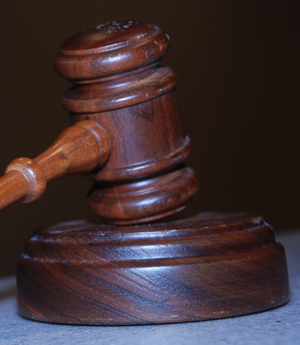
Las Vegas Redistricting — Fair or Gerrymandering?
This post may contain affiliate links or Google Ads and we may earn a small commission when you click on the links at no additional cost to you. As an Amazon Affiliate, we earn from qualifying purchases. This is at no additional cost to you and helps with our website expenses.
Issues of racial gerrymandering and fracturing are at the heart of a recent court ruling that is roiling Nevada politics in advance of the 2012 elections.
The ruling, announced by District Court Judge James Todd Russell at a hearing in Carson City, set guidelines for a panel composed of three citizens, which is tasked with creating a redistricting proposal that will affect four U.S. congressional and 63 state senate districts.
The redistricting is needed to accommodate population growth in the 10 years between 2000 and the 2010 U.S. Census, which added a fourth seat in Congress to the three Nevada already has.
How Redistricting in Las Vegas Affects 2012 Elections
The major electoral issue for Democrats and Republicans in Nevada politics is the state’s Hispanic population. Hispanic voters are usually a strong constituency for Democrats, but that reality is complicated in Nevada politics by the fact that the state’s Republican governor, Brian Sandoval, is Hispanic.
Democratic legislators passed two redistricting proposals that were opposed by Republicans (the minority party in the state legislature). Gov. Sandoval also vetoed the legislation because they would have drawn the district lines in such a way that the Hispanic population would be divided among three districts.
Republicans felt that this would “fracture” the Hispanic vote. Democrats, on the other hand, oppose the Republican proposal to create one Hispanic-majority district in central Las Vegas, on the grounds that this constitutes “racial gerrymandering.”
Las Vegas Redistricting Now a Judicial Matter
 As a result of this impasse, redistricting became a judicial matter. Along
As a result of this impasse, redistricting became a judicial matter. Along
with the guidelines, Judge Russell instructed the three-citizen panel to invite commentary at two public hearings. The panel will then submit the court proposed maps for redistricting, which Russell will then release for public inspection and commentary until approximately the middle of November. At that time, Russell will either accept the maps or return them to the panel for further work.
Both Republicans and Democrats have accepted this process for now, but in a highly charged political atmosphere, where any redistricting proposal will affect partisan fortunes regardless of the specifics, both sides are expecting that the issue will ultimately have to be settled in a higher court.



